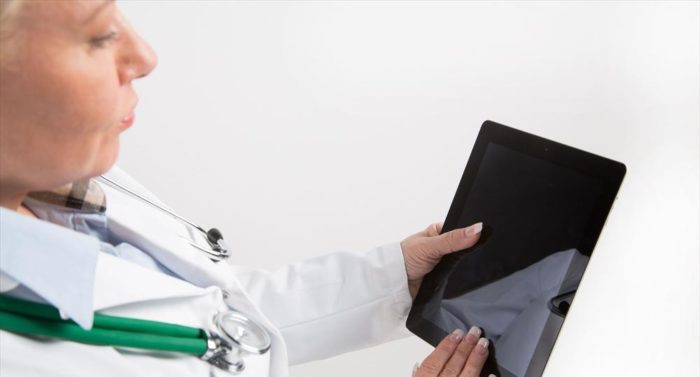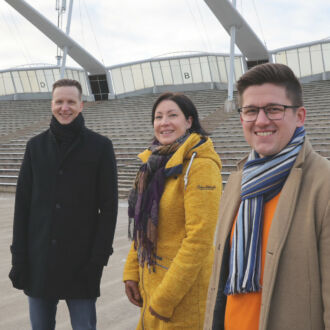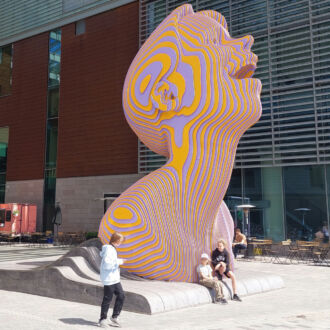Finland and its northern city of Oulu are becoming recognised around the globe for the development of an innovative healthcare ecosystem.
Healthcare leaders from universities, governments and businesses around the world met at Nightless Night, a conference in Oulu in summer 2014, to learn from world-class innovative health programs running in Finland. The event name refers to the fact that the sun hardly sets at all during the northern summer.
Dorothy Whittick of Canada’s IBM Global Centre of Competence for Healthcare and Life Sciences, a keynote speaker at Nightless Night, believes Finns are leading the world in advanced and innovative health and wellness ecosystems.
“The culture of Finland is very collaborative and transparent, which helps to unite diverse groups of stakeholders,” she says. “The OuluHealth ecosystem is an excellent example of this collaboration – between academic researchers, business entrepreneurs, government leaders and health and social service providers. This collaboration, transparency and stakeholder engagement allows them to leapfrog other nations in developing innovative and inclusive health and wellness ecosystems.”
Europe watching Oulu

Minna Hendolin of TEKES believes Finland will be “a model country for consolidating a sustainable and innovative healthcare system.”Photo: Tero Suutari/Business Oulu
The city of Oulu is becoming well known internationally for delivering integrated health and social care while embracing technology, says Brian O’Connor, chair of the European Connected Health Alliance: “More and more governments throughout Europe are moving to the same model and want to learn from Oulu.”
“Among other healthcare innovations, Oulu has pioneered the Self Care Project, which allows citizens to engage in direct electronic communication with their doctor, access blood test results electronically and book and manage their doctor’s appointments online. The system is currently being used by over half the city’s population.”
Earlier in 2014, four Finnish government ministers (the Ministers of Economic Affairs; Social Affairs and Health; Education and Science; and Health and Social Services) signed a health sector growth strategy for research and innovation activities that formalised a national roadmap for an innovative healthcare ecosystem. The goal was to create an internationally competitive advantage for Finland.
Minna Hendolin works at the Finnish Funding Agency for Technology and Innovation, known by its Finnish abbreviation TEKES, as executive director of vitality of people. She says this is the first time Finland has established a national strategy that examines its health sector from an innovation investment and business growth perspective, rather than simply treating it as a necessary cost.
“This new strategy aims to build up a national health ecosystem of partners in business, research and public bodies that will boost innovation and business growth,” she says. “We are on the verge of becoming a model country for consolidating a sustainable and innovative healthcare system.”
Finland’s unique health databases

In the digital health revolution, the focus is shifting from health treatment to prevention and making better choices.Photo: Juha Tuomi/Rodeo/Lehtikuva
One of the reasons for this success is that Finland has built up reputable biobanks storing human biological samples and associated data. This benefits research aimed at discovering better diagnostic treatment of chronic health conditions and improving prevention of these conditions. Hendolin says the biobanks are establishing close collaboration between government, business and research entities.
Finland is well positioned to make the best use of this collaboration to help prevent chronic disease, believes Maritta Perala-Heape, director of the Centre for Health and Technology at University of Oulu. “We are experiencing a shift away from health treatment to a focus on prevention,” she says.
“The digital health revolution is giving us the opportunity to collect and analyse a lot of health data so that we can build new preventative health services and guide citizens towards better health choices. Finland’s extensive health databases are driving this focus on prevention to help citizens lower the risks of chronic diseases.”
“Our comprehensive national health databases are globally unique,” says Hendolin, “and they’re opening up a real opportunity for Finland to be a forerunner in health sector research, innovation, investment and new business activities.
“Our biobanks especially are leading the way,” she says. “Finnish legislation recently established biobanks that would collaborate with businesses to improve health outcomes. While these biobanks are publicly owned through university hospitals, they are developing a business identity to boost growth in healthcare technology.”
By Mark Badham, August 2014






